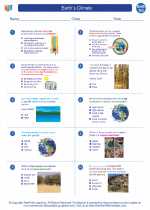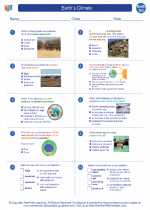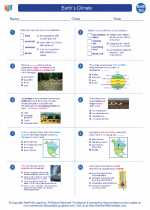Nuclear Reaction
A nuclear reaction is a process in which the nucleus of an atom is altered, resulting in the transformation of one element into another. This can occur through various processes such as nuclear fission, nuclear fusion, or radioactive decay.
Nuclear Fission
Nuclear fission is the process in which the nucleus of an atom is split into two or more smaller nuclei, along with the release of a large amount of energy. This process is the basis for nuclear power plants and nuclear weapons.
Nuclear Fusion
Nuclear fusion is the process in which two or more atomic nuclei come together to form a larger nucleus, releasing a tremendous amount of energy in the process. This process powers the sun and other stars.
Radioactive Decay
Radioactive decay is the process in which an unstable atomic nucleus loses energy by emitting radiation, resulting in the transformation of one element into another. This process is used in carbon dating and medical imaging.
Types of Nuclear Reactions
There are several types of nuclear reactions, including:
Each type of reaction involves specific changes to the nucleus of the atom, resulting in the release of different types of radiation.Study Guide
When studying nuclear reactions, it's important to understand the following key concepts:
- The differences between nuclear fission and fusion
- The role of radioactive decay in the formation of elements
- The types of nuclear reactions and their characteristics
- The applications of nuclear reactions in energy production, medicine, and scientific research
◂Earth Science Worksheets and Study Guides High School. Earth`s Climate

 Worksheet/Answer key
Worksheet/Answer key
 Worksheet/Answer key
Worksheet/Answer key
 Vocabulary/Answer key
Vocabulary/Answer key
 Vocabulary/Answer key
Vocabulary/Answer key
 Vocabulary/Answer key
Vocabulary/Answer key
